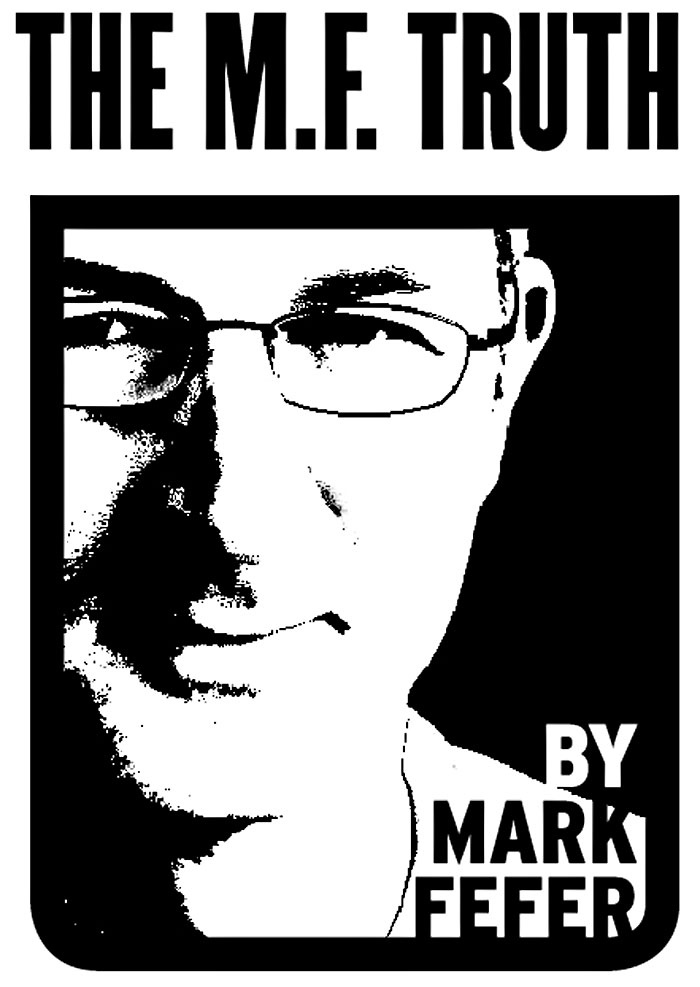Thursday is D-Day for Dino Rossi. That’s when a King County Superior Court judge will decide whether the Republican candidate for governor has to testify under oath—prior to the election—about his role in an apparently illegal fundraising scheme by his biggest backers, the Building Industry Association of Washington.
With visions of deregulation and a license-to-sprawl under Rossi, the homebuilders have been on the wildest campaign spending spree since Paul Allen bought up the airwaves to get himself a new Seahawks stadium a decade ago. The BIAW’s attack ads and “Don’t Let Seattle Steal This Election” billboards have all been purportedly “independent” of the candidate, which means they’re not subject to any expenditure limits.
But evidence uncovered by some dogged anti-BIAW attorneys suggests that Rossi, in fact, helped to solicit money for the BIAW’s political war chest back in the summer of 2007, before he had officially announced as a candidate. Rossi’s dollar-dialing—if proven—could render nearly all the BIAW’s spending in the governor’s race illegal. Instead of being “independent,” the BIAW would be subject to the limits on direct campaign contributions—$3,200 per candidate—whereas right now the BIAW appears poised to spend more like $7 million.
To stop the BIAW from emptying the rest of its negative-campaign cartridges, two former Supreme Court justices, represented by attorneys Knoll Lowney and Mike Withey, filed suit [PDF] against the builders last week, seeking an injunction. Their first order of business: deposing Rossi.
Rossi’s response has followed the Cheney/Palin m.o., the one we’ve come to expect from all law-and-order Republican types when faced with questions about their own behavior: Attack your accusers, express contempt for the process, and try to quash the subpoena.
In media statements and legal papers, Rossi and his spokespeople have cast the whole business as nothing but a political stunt. “They want to talk to me on the day of our last debate. And with her partisan lawyer, with unlimited time frame. Well, you know what? We’re not going to play that game,” sniffed Rossi in an interview with KPLU. The two former Supreme Court justices behind the suit are described in Rossi’s legal motion [PDF] as “prominent supporters” of Gov. Gregoire who have made “sizable donations” to her campaign—as though that by itself made the charges less credible.
It’s true, pro-Gregoire forces have made hay of the alleged scandal, which they’ve attempted to dub “Buildergate.” Aaron Ostrom’s liberal advocacy group Fuse has functioned as a kind of p.r. agency for Lowney. But dismissing the allegations as “political”—which the media has largely allowed Rossi to do—is ridiculous. Campaign-finance rules are mostly enforced in response to complaints. And who else is going to complain besides the opposing side?
Under state law, someone is legally considered a candidate when there’s a PAC promoting them with their consent. And that at least appears to have been the case last year when Rossi called up board members of the BIAW’s Seattle/Everett-area chapter, known as the Master Builders of King and Snohomish Counties.
As I wrote in a previous column, a tactical divide separates the BIAW from the Master Builders, who tend to prefer a more conciliatory stance and less harsh rhetoric. Last year, when the BIAW sought extra contributions from its local chapters to help bankroll Rossi’s rematch with Gregoire, the Master Builders were resistant. According to meeting minutes uncovered by Lowney, Rossi made phone calls on this subject to several of the Master Builders’ board members. If Rossi was in fact trying to convince them to contribute to a fund that was earmarked for him, that would make him a candidate at that time, and the money raised would no longer qualify as “independent” expenditure.
Evidence included in Lowney’s suit suggests that during the last governor’s race, the BIAW had been toying with exactly this idea of using Rossi to troll for dollars. In June 2004, the BIAW’s lawyer sent a letter [PDF] to the Public Disclosure Commission inquiring whether it would be OK for a candidate “to informally refer” supporters to a PAC that had been set up to make independent expenditures on that candidate’s behalf. “May the candidate make a phone call to a supporter to facilitate a meeting…?” The regulators’ response was no.
Lowney now wants to depose Rossi, and others, to see if the BIAW went ahead and had him do so anyway. It’s a pretty shocking accusation, far graver than any of the technical campaign-finance violations with which Lowney has been grazing the BIAW so far. But the smoking gun may have come too late for Washington’s election-oversight apparatus—which is so slow-moving as to be in this case effectively useless.
It’s the state’s job to enforce campaign-finance laws. And state rules give the Attorney General 55 days to investigate any citizen complaint. If the AG doesn’t take action by then, citizens can file their own suit. The AG’s office, led by Republican Rob McKenna, says it was only apprised of the accusations against Rossi last week, and therefore Lowney may not yet have clearance to go ahead with his suit. A letter to this effect was issued by the AG last Thursday. It enraged Lowney, but was awfully handy for Rossi, whose lawyers more or less copied the AG’s statement and pasted it into their own legal brief.
I’m guessing Rossi will get a pass for now. The law seems to be on his side—which is exactly what is so wrong with the law, or at least with the way it’s being enforced. This isn’t the usual dispute over arcane reporting requirements; this is, potentially, an election-changing act of malfeasance. And if McKenna doesn’t see fit to hurry the government’s usual timetable, he’s only going to affirm the lesson that the BIAW has already learned: Win first, worry about the rules later.








